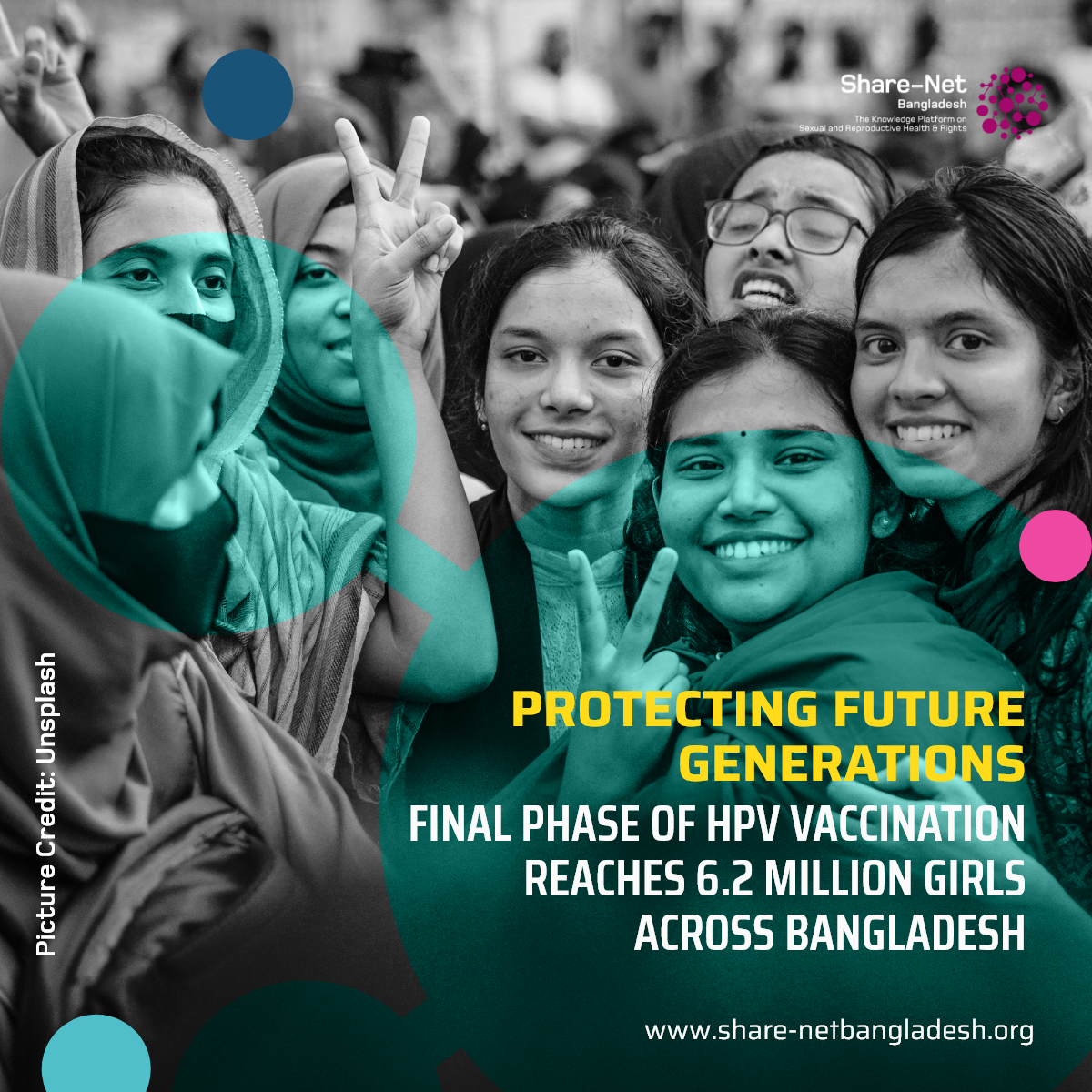Protecting Future Generations: Final Phase of HPV Vaccination Reaches 6.2 Million Girls Across Bangladesh
“A single dose of HPV vaccine will prevent cervical cancer, protect women’s health, and help to build a healthy nation,” declared MA Akmall Hossain Azad, Senior Secretary of the Health Service Division, as Bangladesh entered the final stage of its Human Papillomavirus (HPV) vaccination campaign on Thursday. The month-long campaign aims to protect 6.2 million girls aged 10-14 across seven divisions: Barishal, Chittagong, Khulna, Mymensingh, Rajshahi, Sylhet, and Rangpur.
This final phase builds on last year’s initial success in Dhaka, where over 1.5 million girls were vaccinated. Following this campaign, the HPV vaccine will become a standard part of the national immunisation program, reaching girls in 5th grade and 10-year-old girls not enrolled in school.
Cervical cancer ranks as the second-highest cancer-related cause of death among women in Bangladesh, claiming approximately 5,000 lives annually. This ambitious immunisation effort, backed by Gavi, the Vaccine Alliance, UNICEF, and the World Health Organization (WHO), aims to significantly reduce these preventable deaths.
Cervical cancer, often caused by HPV, is largely preventable with early vaccination. The campaign’s approach aligns with Bangladesh’s broader Sexual and Reproductive Health and Rights (SRHR) goals, focusing on gender equity in health access.
“Now it is time to get these life-saving vaccines to the girls in the remaining divisions,” said Emma Brigham, UNICEF Representative OIC to Bangladesh, adding that special attention would be given to girls in informal schools, religious institutions, and those living on the streets.
Under this initiative, 6.2 million HPV vaccines have been secured for 2024, available at schools and dedicated centers. Registration can be completed through the “VaxEPI” app, providing access to vaccination sessions from 8 a.m. to 3:30 p.m. on weekdays. Thabani Maphosa, Chief Country Delivery Officer at Gavi, reinforced Gavi’s commitment to SRHR by supporting Bangladesh in ensuring health protections for all young girls.
The HPV vaccine, available at no cost, underscores the government’s commitment to women’s sexual and reproductive health rights. It is a critical measure to curb the disease’s spread and empower women’s health at a national level. As Dr. Bardan Jung Rana, WHO Representative to Bangladesh, noted, “By uniting in this effort, we have the power to safeguard the women of Bangladesh and pave the way for a healthier future.”
This campaign serves as a vital public health intervention, helping ensure that all girls, regardless of socio-economic background, receive the protection they need against cervical cancer.
Source: Dhaka Tribune
Picture Credit: UN in Bangladesh

